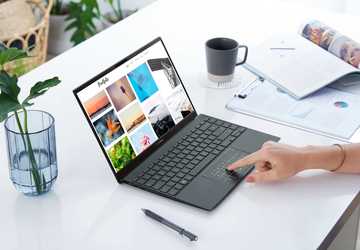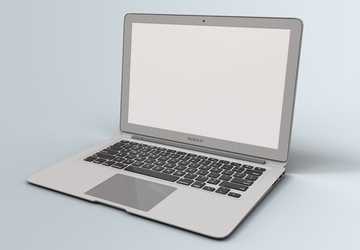How to Choose the Best Laptop for Your Needs?
Are you not sure whether to choose the right laptop with the right specs? With so many laptop devices available, choosing the best one can be difficult. Finding a more or less fancy laptop is nothing more than a headache. As the laptop industry continues to produce various models of laptops, you need to choose a laptop with high performance and long battery life. Buying a brand new laptop is always exciting, but testing its capabilities can be difficult.
Understanding certain factors will help you find the right choice. Here you'll find the ultimate laptop guide to save time and start using your laptop today.
Type of laptop

When buying a laptop for basic or professional computing tasks, you need to choose one that suits your needs. So, get to know the types of laptops available in the market so that you can make your decision easily.
Entry level laptop
Entry-level laptops are great for casual use if you want to perform basic computing tasks. You don't get standard performance, weight, or battery life. But it can handle most low-performance web browsing and word processing tasks.
Mid-range laptop
If you travel a lot, you'll want a thin and light laptop (an ultraportable device). Such laptops usually come in the form of ultrabooks. They can't handle high-end tasks like video editing, graphics processing, or gaming. Students and business people can use this software.
High-end laptop
What if you own a laptop model with high processor performance (latest generation), maximum RAM, and easy portability? These are high-end models that offer high-resolution screens and powerful graphics. High-end laptops come into play when computer professionals need to handle intensive computing tasks such as programming, game development, and 3D automation.
Factors to consider when choosing a laptop
Check out our handy buying guide below to buy the laptop that suits your needs:
Operating system
Before buying a laptop, find the best operating system (OS). It depends on your needs. If you want to use a specific software, check if it runs on a specific laptop. Here you'll find an overview to help you understand the pros and cons of each operating system.
Windows
This flexible operating system has always been the best choice for running a variety of software. Although the quality of laptops depends on the model, the fastest models offer great performance. Windows-based PCs offer advanced user interfaces, improved designs, and lower prices. Works well with Microsoft Apps, Google Chrome and Adobe - best suited for business and game development programs.
Apple system

If you're a laptop beginner, Apple's macOS may be a better choice. Any manufacturer can produce Windows and Chrome OS, but Apple follows unique specifications. One of its hallmarks is a high-quality design and a high-quality display, resulting in a higher price tag. In addition, users can also use media editing software. MacOs is an innovative computer operating system for designers and photographers.
Chrome OS
If you're on a tight budget, Chrome OS is the cheapest option. Chromebooks offer web browser access as a web version. You cannot run Android apps like Adobe or Microsoft Office on it.
Linux
Linux can be installed on any laptop hardware. If you don't need popular applications like MS or Adobe, Linux is a good choice. It offers free alternatives; LibreOffice and GIMP.
Ram
Performing labor-intensive tasks requires high system speeds. If you want to run multiple programs, a fast laptop is a must. RAM determines the speed of your laptop. Laptops come in different RAMs, with high-end models ranging from a minimum of 4GB to a maximum of 16GB. For general use, the ideal RAM is 8GB.
Screen quality
You have to look at your laptop screen to complete the task. Laptops with 1920 x 1080 resolution offer better quality. Also, the laptop screen should not be mirrored. Otherwise, reflected light can make visibility difficult. Additionally, larger laptops have higher resolutions and deliver crisp, high-quality graphics. You can buy low-end, low-resolution laptops at affordable prices.
Battery Life
Considering battery life is crucial to ensure long-term operation of your laptop. The brightness of your laptop screen and the running of your programs depend on the life of your battery. If you work longer hours, consider investing in an ultraportable laptop so you don't have to lug around an external power adapter and cables. Additionally, laptops with larger capacities require longer charging times. The charging speed of some laptops slows down after a few years. When buying a laptop, check the battery capacity (Wh or mAh).
Storage
Laptop drives can store data files, installed programs, music, videos, and many files. Chrome OS allows you to store a lot of data compared to Chromebooks. It goes without saying that not all data stored on a storage device is used. For example, an installed program may take up space on the storage device but not in RAM.
SSD
Due to their reliability, solid-state drives are more common than hard drives today. SSDs offer faster performance gains than traditional drives. It provides NAND flash memory to store data. So if you don't have internal storage for your laptop, buy a primary external drive.
Port
If you want to use peripherals or external drives, you'll need a USB port. Some laptops support USB-A ports that serve as side ports. However, the better USB-C ports have smaller connectors that require the port to be facing up on one side or the other. If you want to connect a monitor for other work, use a laptop connected to a USB-C port or HDMI.
Wifi
When choosing a laptop, consider internet speed. Some laptops connect via Wi-Fi, while others have an Ethernet port that connects to a modem or wired network. The integrated Ethernet port is connected via an adapter. It's best to buy a laptop that supports the latest Wi-Fi standards, such as Wi-Fi 5 or Wi-Fi 6. These bring extended functionality and ensure the security of the system.
Conclusion
Now, this article will not make you hesitate while choosing a laptop. When choosing a laptop, you must consider certain factors. Whether it’s the operating system, laptop memory, RAM, or battery, everything matters. So, follow the guide to perform your tasks efficiently.
Related Posts
- 6 Eco-friendly Devices Every Sustainable Tech Lover Needs
- What are the Best Apps for Learning a New Language?
- Top 10 Remote Work Tools for Productive Virtual Collaboration
- How to Choose the Best Laptop for Your Needs?
- What are the Best Tablets for Reading eBooks?
- Top 10 Gadgets that Will Make Your Life Easier